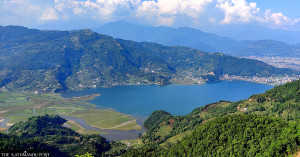Money
Supplier agrees to address problems with Chinese aircraft
China’s AVIC International Holding Corporation, the supplier of Nepal Airlines Corporation’s (NAC) MA60 and Y12e aircraft, has agreed to address problems in the planes.
Sangam Prasain
AVIC held two separate meetings with the Tourism Ministry and NAC officials after the NAC board wrote to the government on January 26 stating the Chinese-gifted aircraft have become financially unviable to fly due to the aircraft’s poor performance, untimely delivery and high cost of spare parts, among others.
“Two rounds of meetings have been held with the aircraft supplier so far and both the sides have agreed to resolve the problems through a proper planning,” said NAC Spokesperson Ram Hari Sharma. “Minutes of the meetings will be prepared after a few more negotiations and will be implemented accordingly.”
In the letter, NAC had told the ministry the issue should be settled by mid-April as the aircraft has been insured only until that time.
The airline also told if the existing problems remain unsolved, it would be forced to review its decision to acquire four other aircraft (three Y12e and a MA60), which are scheduled to be delivered in the near future.
In November 2012, NAC had signed a commercial agreement with AVIC, a Chinese government undertaking, to procure the six aircraft.
The corporation has raised four issues—landing and take-off weight or aircraft performance, insurance premium, timely delivery of spare parts and cost of spare parts—to be sorted out jointly by the two countries forming a high-level government panel.
Under the landing and take-off weight, the national flag carrier said the aircraft is not capable of carrying passengers at full capacity. For example, the 56-seater aircraft can accommodate 54 passengers from Kathmandu’s Tribhuvan International Airport, but during its return from smaller airports like Bhadrapur, it has to cut the passenger number to 34.
Another China-gifted Y12e aircraft also has the weight problem. The aircraft has 200kg excessive weight that has forced NAC to cut the number of passengers by at least three individuals.
The second issue is high insurance premium. As the insurance premium is too high even for a brand new aircraft, NAC plans to requesting the Chinese side to insure the aircraft themselves as they have extensive global network of insurance companies.
The third issue is untimely delivery of spare parts. Due to the delay in the delivery of spare parts from China, the corporation has been forced to ground the aircraft for an extended period even if a small part of becomes defunct. NAC said it has also proposed a “flight hour agreement” with the aircraft manufacturer to ensure timely delivery of spare parts. Under the agreement, NAC will pay the spare part costs like insurance premium.
As hefty costs of spare parts have become another matter of concern, NAC has proposed listing the spare parts’ costs in a package through a negotiation so the prices do not fluctuate massively every time NAC has to procure them.
The MA60 plane arrived in Kathmandu on April 27, 2014, but was forced to take an extended rest at Tribhuvan International Airport.
The aircraft was put into service in July, 2014. Since then, the aircraft has been grounded for at least two months at different times.
NAC’s Delhi flights from Feb 25
Nepal Airlines Corporation (NAC) will resume Kathmandu-Delhi flights from February 25, with four flights a week. NAC said it will fly the sector on Monday, Wednesday, Friday and Saturday at 8:00 am. It plans increase the frequency to daily flights after a few weeks of the operation. The corporation will also operate three flights (Tuesday, Thursday and Saturday) on the Kathmandu-Hong Kong sector and two flights (Monday and Friday) on the Kathmandu-Bangkok sector with the new Airbus A320 aircraft. The national flag carrier has completed the custom clearance procedures and is in the process of acquiring the air operator’s certificate (AOC) for the aircraft.




 25.42°C Kathmandu
25.42°C Kathmandu














